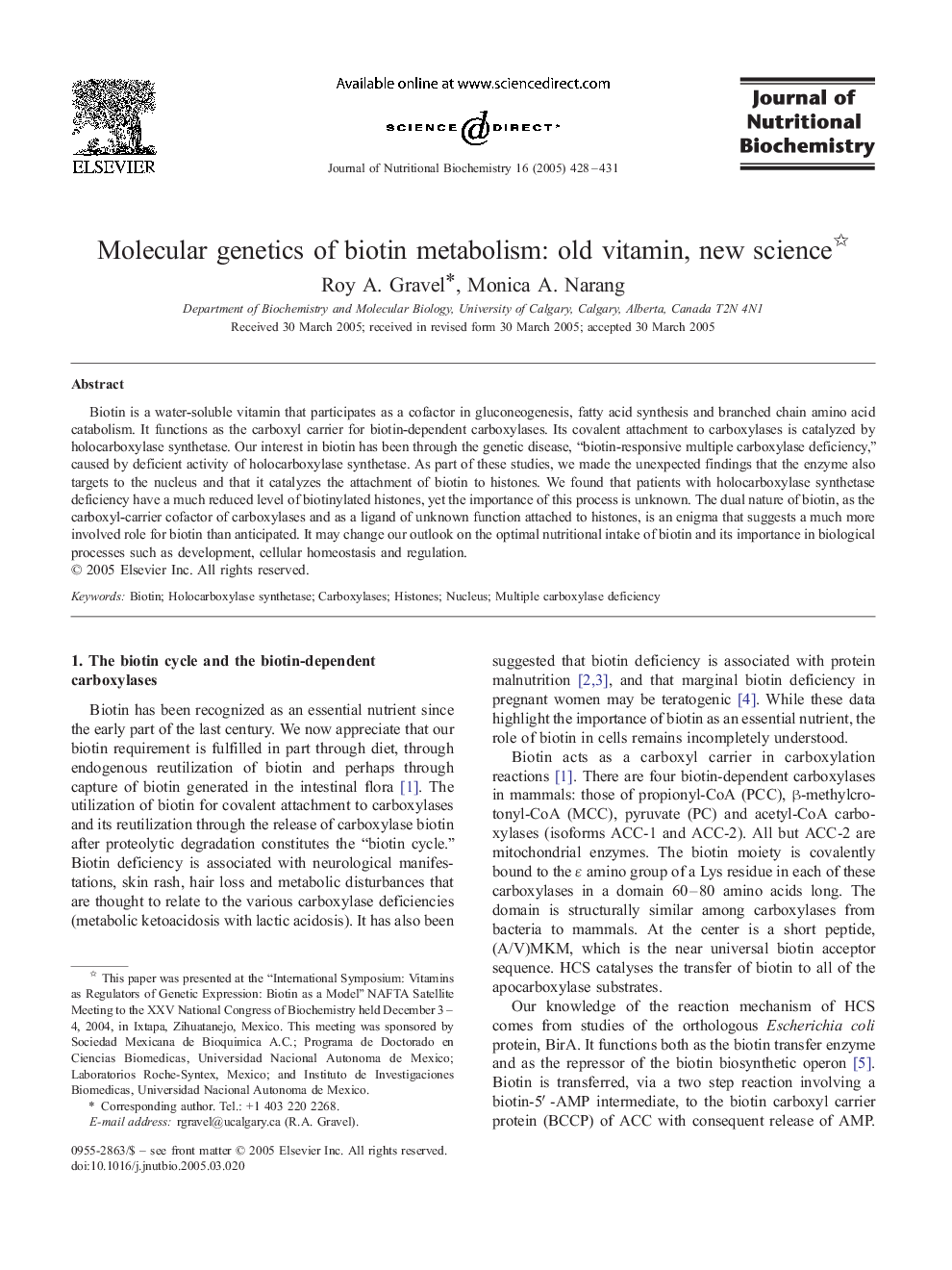| Article ID | Journal | Published Year | Pages | File Type |
|---|---|---|---|---|
| 9891552 | The Journal of Nutritional Biochemistry | 2005 | 4 Pages |
Abstract
Biotin is a water-soluble vitamin that participates as a cofactor in gluconeogenesis, fatty acid synthesis and branched chain amino acid catabolism. It functions as the carboxyl carrier for biotin-dependent carboxylases. Its covalent attachment to carboxylases is catalyzed by holocarboxylase synthetase. Our interest in biotin has been through the genetic disease, “biotin-responsive multiple carboxylase deficiency,” caused by deficient activity of holocarboxylase synthetase. As part of these studies, we made the unexpected findings that the enzyme also targets to the nucleus and that it catalyzes the attachment of biotin to histones. We found that patients with holocarboxylase synthetase deficiency have a much reduced level of biotinylated histones, yet the importance of this process is unknown. The dual nature of biotin, as the carboxyl-carrier cofactor of carboxylases and as a ligand of unknown function attached to histones, is an enigma that suggests a much more involved role for biotin than anticipated. It may change our outlook on the optimal nutritional intake of biotin and its importance in biological processes such as development, cellular homeostasis and regulation.
Related Topics
Life Sciences
Biochemistry, Genetics and Molecular Biology
Biochemistry
Authors
Roy A. Gravel, Monica A. Narang,
